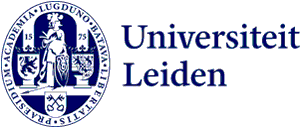
Coffee with Gert Renkema: ‘We are the fastest growing faculty at Leiden University’
Twice a year, Gert Renkema, Head of Financial and Economic Affairs at FGGA, offers us an insight into all that is going on around FGGA's finances. With a cup of coffee in his hand, Gert shares last year's results and a financial forecast.
Tell us, how did we do in 2023?
‘The annual results are in. I think it went pretty well, if you look at the result and compare it to the budget and forecast (BFR2). We are still growing strongly as an organisation and had 16% more turnover last year. That's a lot. We ended up with 43.5 million in revenues, 6 million more than the year before. That's seen as great growth.’
‘We want qualitative growth’
That sounds very positive!
‘Yes, we are the fastest growing faculty at Leiden University! This is due to student numbers and the number of credits. Other faculties have seen a decline in this, which we don't see within FGGA. We have actually grown a little faster than we would like as an organisation over a longer period of time, which is a maximum of 10% per year. We want qualitative growth and not growth for growth's sake. By the way, it is in line with what we already foresaw in the 2023 budget.
One of the things we did not foresee was the new Collective Labour Agreement (CLA), which took effect on 1 September. While salaries increased by 9%, we also received an extra 9% payment from the university, but not for research projects. There are contracts with clients for this, such as NWO and the EU. That means that we incurred extra costs on research projects, because the CLA development went faster than we had anticipated.’
Turnover has increased, but has the number of FTEs also risen?
‘Certainly. Only if you compare it to the growth in turnover, we are on the low side with 8.5% staff growth. Next year we expect it to be the other way around. Then we will grow faster on the personnel side than on the revenue side. Our explanation is that it is difficult to fill vacancies, to get people out of the labour market. To be precise, at the end of last year we had 354 FTEs, 30 more than a year earlier.
What has also made it difficult is the awarding of start-up and incentive grants to all universities at the same time. They are all now trying to find these people in the job market, so it takes a little more time.’

What about the workload?
‘My perception is that workload has not increased. The Faculty Board pays a lot of attention to work pressure among staff. What does make it difficult is that you can't always deploy staff where you would prefer. I think we as a faculty and university are advocating that we get less earmarked funds and that we get more funding through the lump sum. That means that we get a large amount of money and get to decide for ourselves how to spend it; we are quite capable of doing that ourselves. Hereby an appeal to politicians: less earmarked funds and decent lump-sum funding.’
Is there any news about the number of permanent contracts?
‘Two years ago we were at a flexible shell of around 30%. In 2022 we were at 14% and this year at only 8%. So more than nine out of ten have a permanent contract. This puts us well below the agreements made in the CLA. This is an absolute improvement and good news for employees. So they know where they stand. "Retention is the new recruiting", I read somewhere recently. That also applies to us as an organisation. Turnover is not very high with us either, among university teachers last year only 6%, which is unprecedentedly low.’
‘Turnover among university teachers is only 6%, unprecedentedly low’
What is the forecast for 2024?
‘We expect a small negative result for the faculty as a whole, and that has to do with the fact that in recent years we have received earmarked funds that we have yet to spend. Those are catch-up programmes in the area of quality resources, such as student mentorships or the online coaching program Siggie, and research incentive funds. But the main message is that we can just carry that as faculty.’
And in the long term?
‘In the next few years we do expect growth again, mainly thanks to the new minors and new programmes, such as the new bachelor's degree in Cybersecurity and Cybercrime that is due to start in 2025. In addition, there are other initiatives to be further developed and assessed. Our strategy is that FGGA will continue to grow in the coming years and that will come true.’
Text: Magali van Wieren
